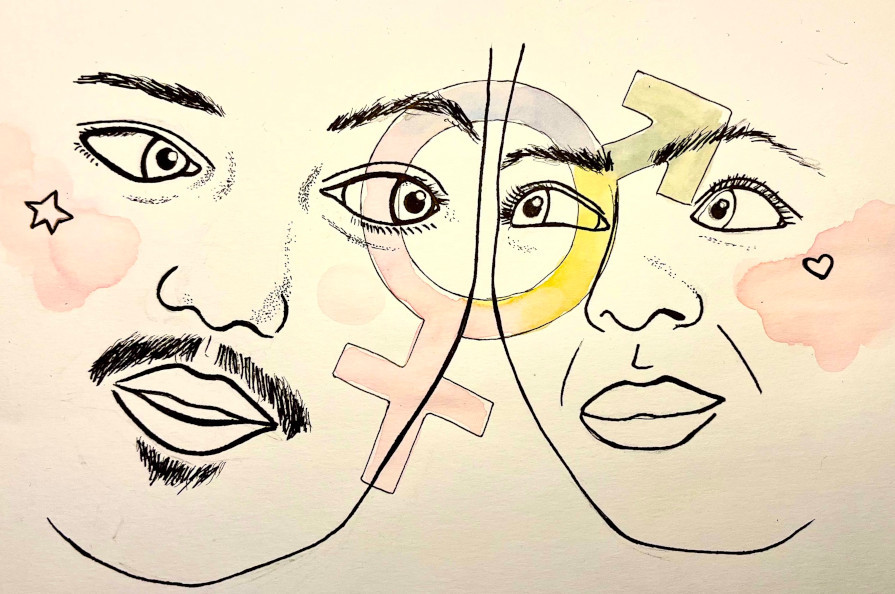Joy in discovery
Uncovering gender as a shared experience
Sipping a tequila soda at the Times Change(d) on Friday night, I asked my partner, “If you were the only person in the world, would you still have a gender?” I asked him partly to fill time, partly to try and explore my own fluctuating, evolving sense of gender identity.
In a recent episode of The Ezra Klein Show, Masha Gessen, a nonbinary person who writes for The New Yorker, said “gender is something that happens between me and other people.”
They explain gender as something that doesn’t actually happen inside their body. Instead, “It’s what other people see, what I want them to see, what I feel when they see one thing and not the other thing.”
Something clicked when I read a transcript of this interview. Gessen’s deceivingly simple framework lays bare what I find both so binding and freeing about gender. It is – and isn’t – up to me.
I forget which one of us articulated why, but my partner and I settled on “no” before the night’s first act took the stage. If only I or he or some fictional creature existed in the world, that lone being wouldn’t have a gender. They would just be themself.
Minutes after our conversation, Diaphanie’s Heather Thomas introduced a song about coming out later in life. She described how it’s easier for people to discover things about themselves when they’re genuinely secure, happy and at peace.
I can’t know who I would be if my gender wasn’t assigned at birth, anatomically determined and socially prescribed. But I know who I am encompasses more than the “F” marker on my birth certificate, the terms of endearment I like to hear or the clothes in my closet. And I know how much joy I feel uncovering these parts of myself.
This joy is what proponents of the so-called “parental-rights” movement fail to understand. Kids need room to grow and the freedom to explore the labels, haircuts and narratives that make sense to them, for them at a given moment in time.
During the Ezra Klein Show interview, guest host Lydia Polgreen paraphrased Jules Gill-Peterson, a Canadian academic who specializes in transgender history.
“She said it might be comforting and reassuring to imagine that trans people are fundamentally different. But I think the real startling possibility is that they are not and that we all depend on the generosity of strangers to give us our gender every single day.”
Every encounter is a chance for trans people – for any people – to make themselves known to others, to be seen in a different way. Each interaction is an opportunity to shift perceptions, share reinvented identities and convey a sense of self.
There’s a vulnerability to this process, but it’s also a way to connect. For many people, gender is an ongoing exploration, not a fixed designation. My fluctuating gender is something I acknowledge internally – but, more importantly, it’s something I feel when people perceive me in certain ways.
My gender is my joy when someone uses my pronouns correctly or isn’t quite sure if I fit in the box labelled “girl.” It’s the freedom, the exhilaration of being seen and finally, openly sharing those parts of myself.
Danielle Doiron (they/she) is the copy and style editor of The Uniter. They currently call Winnipeg, Philadelphia, Fargo and Canberra home.
Published in Volume 78, Number 07 of The Uniter (October 26, 2023)







